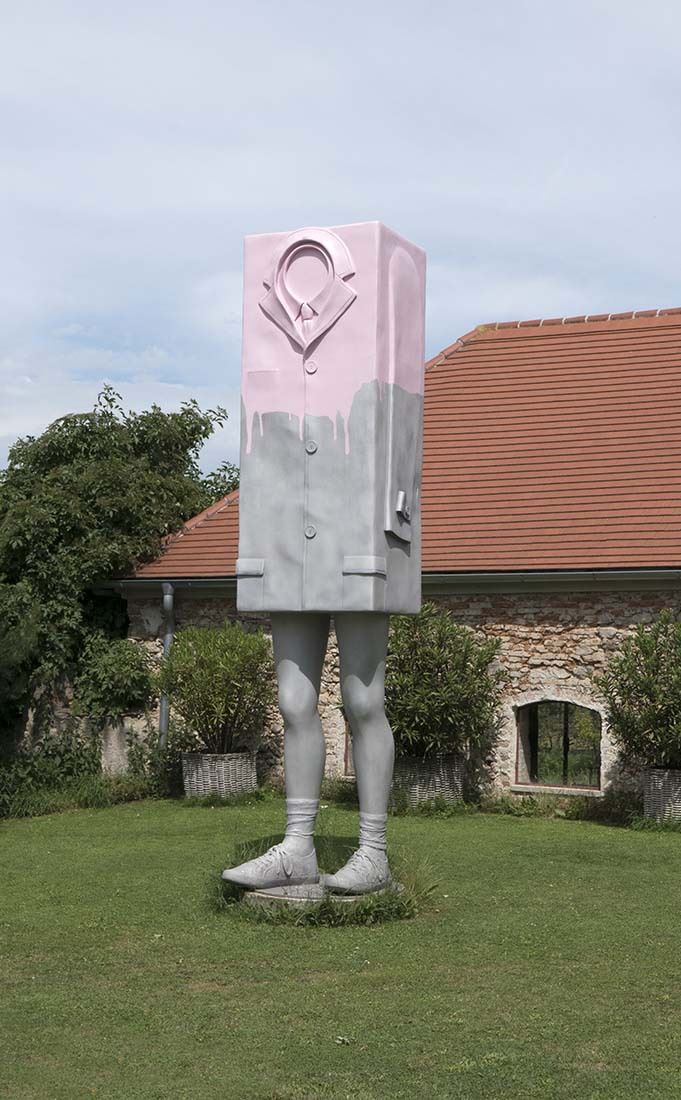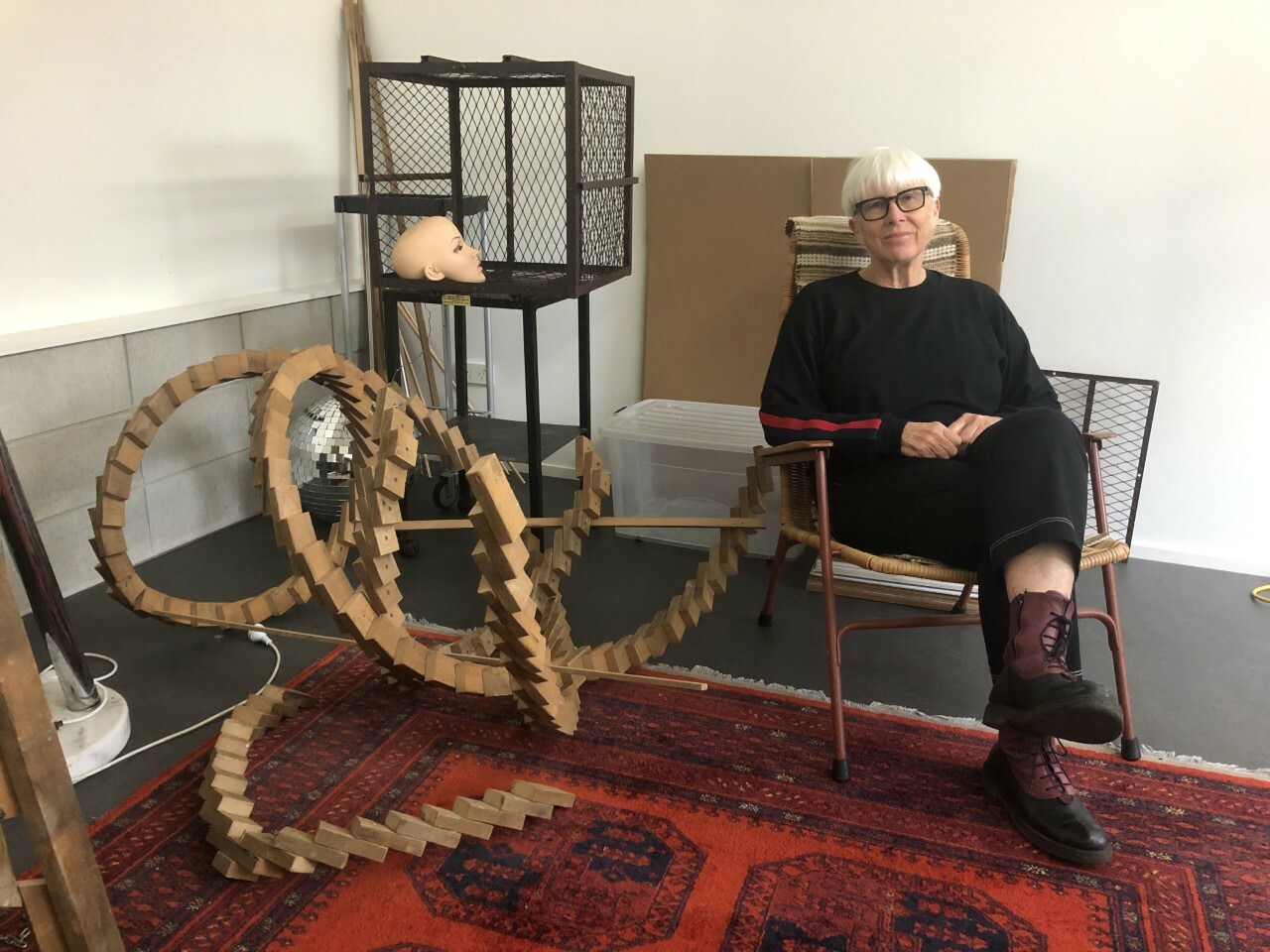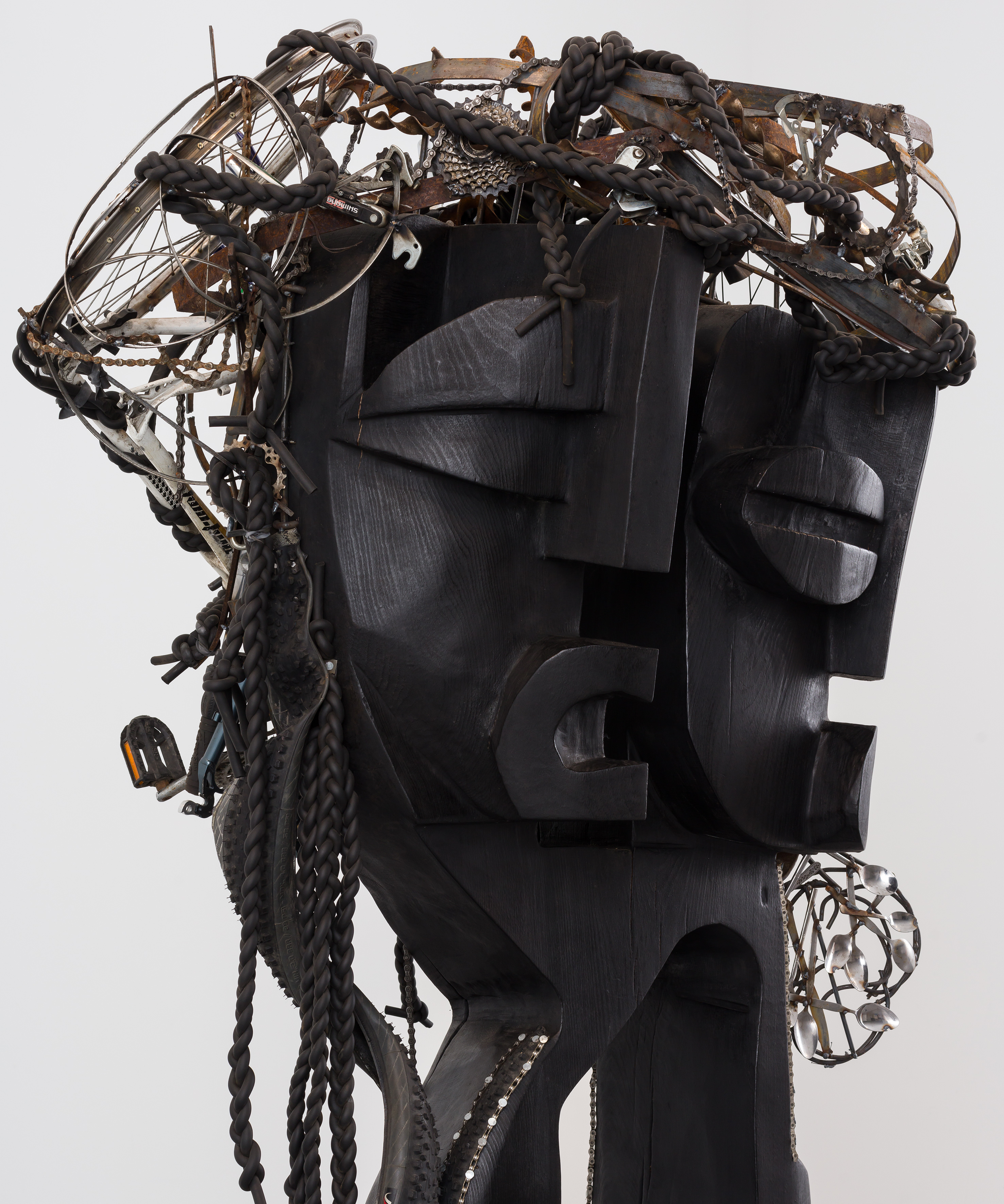About Deborah Rundle: Soar Away
Following her four-week residency at YSP in 2022, New Zealand artist Deborah Rundle has created a series of work focusing on local histories of West Yorkshire. She uses language to explore power relations, and to consider possibilities for change and transformation.
During her time in Yorkshire, she researched local histories of activism and focused on Ann Ellis, who was a textile mill worker known for her pivotal role in the Weavers’ Strike of 1875. Led by Ellis, the revolutionary all-women strike committee mobilised 9,000 women and men to dispute proposed wage cuts in mills across Dewsbury and Batley. Rundle visited sites of interest in the area including textile mills and working-class history museums and collections.

Inspired by this research, she has created two fabric banners that feature excerpts from speeches made during strike committee public meetings.
The text on Soar Away is from an address given by Ellis shortly before the dispute ended. "Stand faithful and true for a man who wouldn’t back a woman was no man at all" are words called out by an unknown male weaver. Never before had an all-female strike committee been elected to represent both male and female workers, and he was challenging fellow male woollen mill workers to continue to stand by the committee.
The banners are made using repurposed woollen blankets, like those historically produced in the 19th century shoddy and mungo mills of West Yorkshire, where waste wool was used to create new materials. The banner tabs are made from a woollen blanket she found in a Batley charity shop, and the Soar Away text is cut from surplus woollen fabric collected from mills still operating in Yorkshire. Stand Faithful and True uses a felted blanket that was manufactured in an industrial process that reconstitutes shredded waste material.
Taking the Reins is a cast bronze coin Rundle made in response to discovering that Ellis died in poverty aged 76 in the Bradford Workhouse. At the time, she was described as having ‘died in harness’, a term used to refer to anyone still working at the time of their death. As was common, the workhouse paid its workers with its own tokens that could only be spent in the local community. These tokens branded the users as workhouse occupants and restricted their ability to leave the immediate area. Celebrating liberation and dignity in working life, one side of Rundle’s coin shows a running horse, which has broken free from its harness. The other side has an image of a dandelion as a symbol of resilience and renewal.
In partnership with Te Tuhi, a leading contemporary art space in Auckland, this annual residency programme has given three artists the opportunity to travel to the UK from New Zealand to research and develop new work. Rundle’s residency was supported by philanthropists Sigrid and Stephen Kirk, and in partnership with Te Tuhi.
You may also like
- News

Yorkshire Sculpture Park announces 2023 programme
16 November 2022 - Profile

Deborah Rundle
YSP and Te Tuhi New Zealand-UK Residency Award - News

Yorkshire Sculpture Park announces 2024 programme celebrating diversity and personal discovery
10 January 2024 - Event

Sculpture Baby: Elisabeth Frink
–Spend creative time with your baby and enjoy this sensory session inspired by the Elisabeth Frink: Natural Connection exhibition in The Weston Gallery.







